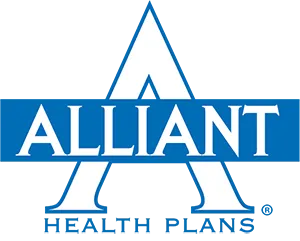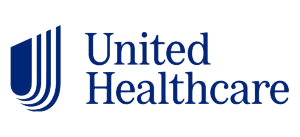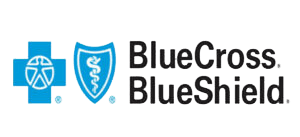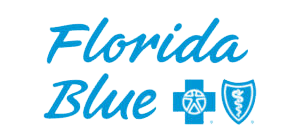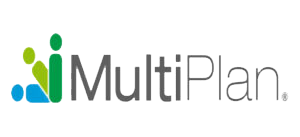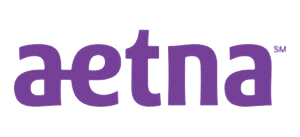Partial Hospitalization Program in Rome, GA
Fairland Recovery Center’s partial hospitalization program in Rome, Georgia, offers help for those dealing with substance use disorders. A PHP allows people to receive outpatient services without staying in a hospital full-time. This program lets patients go home each night while receiving intensive daily treatment.
Our program focuses on adults with substance abuse problems by providing counseling and other behavioral health care services to support recovery. Patients can work on their issues in a structured setting and practice new skills at home.
Our PHP is a comprehensive form of day treatment where our clients will generally participate for 3-6 weeks, attending 25+ hours of individual and group therapy Monday through Friday.
Defining PHP and Its Role in Recovery
Partial Hospitalization Programs are intensive outpatient treatment options for people with mental health or substance use issues. They bridge the gap between inpatient and standard outpatient care.
PHPs typically run 5-7 days a week for several hours daily. During the day, patients attend therapy sessions and receive medical care but return home in the evenings.
These programs play a vital role in recovery by:
- Providing structured support
- Offering intensive treatment
- Allowing patients to practice coping skills in real-life settings
- Easing the transition from inpatient to outpatient care
Comparison of Inpatient and Outpatient Care
Inpatient care, such as PHPs, involves a structured environment where individuals stay at the treatment facility for a specified duration, ranging from weeks to months.
This setting offers 24/7 support from healthcare professionals, allowing for intensive therapy and comprehensive medical supervision. It benefits individuals requiring a significant change of environment or those struggling with severe addictions, as it provides a distraction-free space to focus on recovery.
Outpatient care, on the other hand, allows individuals to live at home while participating in scheduled therapy sessions and group meetings. This model offers greater flexibility, making it easier for patients to balance treatment with work, school, or family responsibilities.
Outpatient programs can vary in intensity, typically providing less frequent support than inpatient care, but can be effective for those with a strong support system and less severe addiction.
Core Components of PHP
Partial hospitalization programs include several key elements:
- Group therapy sessions
- Individual counseling
- Medication management
- Skill-building activities
- Family therapy
These structured programs often use evidence-based treatments like cognitive-behavioral therapy (CBT) and dialectical behavior therapy (DBT).
PHPs may also offer specialized services such as art therapy or stress management classes. The goal is to provide comprehensive care that addresses each patient’s unique needs.
Patients in PHPs learn coping strategies and life skills they can apply outside of treatment. This helps them build a strong foundation for long-term recovery.
The Benefits of PHP for Substance Use Disorders
Partial Hospitalization Programs offer many advantages for addiction treatment. We provide intensive care while allowing patients to maintain some independence.
How We Address Substance Abuse
PHPs are effective for treating both substance abuse and mental illness. These programs offer structured support without full hospitalization. Clients at our treatment center attend therapy sessions during the day but return home at night.
This approach helps people work through their challenges in a safe environment and practice new skills in real-world settings.
Our PHPs use different types of therapy in our addiction treatment programs. These may include:
- Cognitive–behavioral therapy (CBT)
- Rational-emotive behavioral therapy
- Dialectical Behavioral Therapy
- Trauma-focused CBT (TF-CBT)
- Modeling & Skills Training
- Motivational Interviewing
- Solution Focused Person-Centered Approach
- 12-Step Integrated Approach
- Contingency Management (CM)
- Reinforcement and Goal Setting
- Abstract Expression & Arts Therapy
Patients learn coping strategies to manage their symptoms. They also get help dealing with triggers that may lead to substance use.
Overview of Treatment Modalities in PHP
Partial hospitalization programs use various therapy types to help people recover. These include one-on-one talks, group meetings, family sessions, and other helpful activities.
Individual Therapy Sessions
In PHP, patients meet with a therapist alone to discuss their problems. These sessions happen often, usually a few times a week.
The therapist helps patients set goals and learn new ways to cope. They might use methods like cognitive-behavioral therapy to change how patients think and act.
Therapists also check how well medicines work and can change them if needed. Patients can bring up private issues they don’t want to share in groups. These one-on-one talks are a vital part of getting better in PHP.
Group Therapy and Peer Support
Group therapy is a big part of PHP. Patients meet with others who have similar problems. A therapist leads these groups, which happen daily.
In the groups, people share their stories and give each other tips.
Some common types of groups are:
- Skills training groups
- Process groups
- Addiction recovery and support groups
These meetings help patients feel less alone. They learn from others and practice new skills. Group therapy also teaches people how to talk to others better.
Family Therapy and Its Importance
Family therapy brings in the patient’s loved ones. It helps families understand substance abuse treatment better.
The therapist teaches family members how to support the patient at home.
In these sessions, families learn to:
- Communicate better
- Solve problems together
- Set healthy rules
Family therapy can happen once a week or more. It’s important because family support helps patients stay well after PHP ends. It also fixes any family issues that might worsen the patient’s problems.
Holistic Therapies in PHP
PHP treatment often includes other helpful activities besides talk therapy. These can be:
- Art therapy
- Music therapy
- Mindfulness training
- Exercise groups
These therapies help patients express themselves in new ways. They can reduce stress and teach relaxation skills.
Integrative holistic therapies give clients more tools to manage their symptoms. They can be fun and help keep patients interested in treatment. These activities also teach skills that patients can use after they finish PHP.
The Multi-Disciplinary Treatment Team
Our team of skilled professionals works together to provide comprehensive care for patients with mental health issues and substance use disorders. Each team member brings unique skills to support recovery.
Roles of Psychiatrists and Therapists
Psychiatrists lead the medical aspects of treatment in partial hospitalization programs. They diagnose conditions and prescribe medications.
Therapists provide individual and group counseling sessions. These may focus on cognitive-behavioral therapy or other evidence-based approaches.
Together, psychiatrists and therapists create personalized treatment plans. Based on patient progress, they adjust these plans as needed.
Regular team meetings allow for coordination of care across disciplines.
Psychiatrists and therapists also educate patients about their conditions, which helps them better understand and manage their symptoms. Family involvement is often encouraged to support long-term recovery.
Contribution of Nurse Practitioners
Nurse practitioners play a vital role in partial hospitalization programs. They regularly assess patients’ physical and mental health, monitoring vital signs and medication effects.
Nurse practitioners can prescribe and adjust medications under a psychiatrist’s supervision. They also provide health education to patients and families.
Topics may include nutrition, exercise, and sleep hygiene.
In crises, nurse practitioners offer immediate care and support. They work closely with other team members to ensure patient safety.
Their medical training allows them to spot potential health complications quickly.
Support Staff in PHP Environments
Support staff are essential to the smooth operation of partial hospitalization programs. This includes mental health technicians, social workers, and case managers.
They help patients with daily activities and provide emotional support.
Social workers assist with practical needs like housing or benefits. Case managers coordinate care between the PHP and other services. They ensure patients have follow-up appointments and community resources.
The administrative staff handles scheduling and insurance matters. They create a welcoming environment for patients and families. Nutritionists may also be part of the team, especially for programs treating eating disorders.
The PHP Process at Fairland Recovery Center in Rome, GA
Fairland Recovery Center walks you through a seamless process from in-take, assessments, treatment, and aftercare.
Initial Assessment and Confidential Screening
The PHP process in Rome begins with a thorough assessment. Mental health professionals conduct confidential screenings to evaluate each person’s needs. This step helps determine if PHP is the right fit.
Screenings typically include:
- Medical history review
- Mental health evaluation
- Substance use assessment
- Discussion of current symptoms
The assessment team considers factors like the severity of symptoms and support at home. They use this information to decide if PHP is appropriate or if other care levels might be better.
Creating a Personalized Care Plan
After the initial assessment, a personalized care plan is developed. This plan outlines specific treatment goals and strategies for each patient.
Key components of a care plan may include:
- Individual therapy sessions
- Group therapy activities
- Medication management (if needed)
- Skill-building workshops
Our care plans are flexible. They can be adjusted based on progress and changing needs. The goal is to provide targeted support for each person’s unique situation.
Ongoing Monitoring and Adjustment
Throughout the PHP, our staff closely monitors each patient’s progress. We regularly assess how well the treatment works and make changes as needed.
Monitoring methods may include:
- Daily check-ins with therapists
- Weekly progress reviews
- Feedback from group sessions
The care team can adjust the treatment plan if a client’s needs change. This might mean adding new therapies or changing the program schedule.
The aim is to ensure the PHP meets each person’s evolving mental health needs.
PHP as a Step Towards Lasting Recovery
PHPs play a key role in long-term recovery from mental health disorders. They bridge the gap between inpatient care and regular outpatient treatment. This helps patients transition back to daily life more smoothly.
The program teaches essential life skills. These include:
- Stress management
- Healthy communication
- Problem-solving techniques
Patients practice these skills both in therapy and at home. This reinforces what they learn and helps build confidence.
PHPs also offer family support and education. This creates a stronger support system for lasting recovery.
Our Mission to You
Our mission is to remove all roadblocks that could stop a mother, father, son, or daughter struggling with substance abuse and other mental health disorders from accessing the quality treatment they need to beat their addiction, reclaim their life, and pursue a better future.
If you or a loved one needs lasting freedom from addiction or substance abuse, our compassionate team is here to help you achieve the life-changing recovery you desire.
We support our clients at every step of their recovery journey and equip them with the skills, knowledge, and tools needed to heal from their past wounds, rebuild their identity, and live the new, fulfilling life they deserve.
Addictions We Treat
We treat a wide range of drug addiction issues, including dual diagnosis, in our drug rehab center. Some drug addiction problems we treat at Fairland Recovery Center are:
- Alcohol Addiction
- Cocaine Addiction
- Meth Addiction
- Benzo Addiction
- Heroin Addiction
- Opioid Addiction
- Prescription Drug Addiction
- Marijuana Addiction
Let’s Take the First Step Today
At Fairland Recovery Center, we are committed to providing compassionate and comprehensive care, supporting individuals and families on their journey toward lasting sobriety. If you or a loved one is struggling with addiction, do not hesitate to call 770-797-7652 to learn more about our health services.
Our dedicated team is here to help you take the first step toward a brighter, healthier future and overall wellness.
Fairland Recovery Center Programs
Find Help Now
We accept most major insurances


